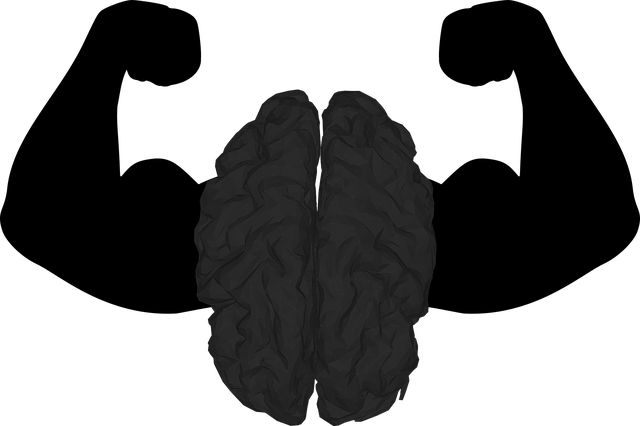Louisville Postpartum Depression Therapy offers vital support for new mothers battling emotional distress, focusing on understanding and managing PPD through tailored interventions. Using the RFM framework, they identify high-risk individuals and provide holistic exercises targeting emotional regulation, stress management, and social connection. The RFM training process involves risk assessment, self-esteem improvement, and personalized mindfulness strategies. Long-term impact measurement tracks reduced PPD rates and identifies key policy indicators for improved maternal mental well-being in Louisville communities.
“In the realm of maternal mental health, especially postnatal depression, Louisville offers a unique approach through specialized therapy. This article delves into an evidence-based strategy, RFM (Risk, Resilience, and Resources), revolutionizing support for new mothers. By identifying high-risk individuals and designing tailored resilience-building exercises, we aim to enhance well-being. We explore the step-by-step implementation of RFM therapy in Louisville, focusing on its potential to mitigate postpartum depression. Additionally, we discuss measuring success and the long-term impact on maternal mental health.”
- Understanding Louisville Postpartum Depression Therapy: A Comprehensive Guide
- The Role of RFM in Identifying High-Risk Individuals
- Designing Resilience Building Exercises for Effective Support
- Implementing RFM and Resilience Training: Step-by-Step Process
- Measuring Success and Long-Term Impact on Maternal Mental Health
Understanding Louisville Postpartum Depression Therapy: A Comprehensive Guide

Louisville Postpartum Depression Therapy offers a lifeline for new mothers experiencing emotional distress after giving birth. This comprehensive guide highlights the importance of understanding and addressing postpartum depression (PPD) in Louisville’s community. PPD is a complex condition, often characterized by intense feelings of sadness, anxiety, and exhaustion, which can significantly impact a mother’s ability to care for herself and her newborn.
Through various therapeutic approaches, including self-awareness exercises and the application of Mind Over Matter principles, affected individuals can gain valuable tools to manage their symptoms. Mental Health Policy Analysis and Advocacy play a crucial role in ensuring accessible and effective treatment options for PPD in Louisville. By raising awareness and pushing for policy changes, advocates work towards a future where new mothers receive the necessary support, fostering both their mental health and overall well-being.
The Role of RFM in Identifying High-Risk Individuals

The identification of high-risk individuals is a critical step in implementing effective resilience-building exercises and strategies, especially for postnatal depression (PND) in Louisville communities. RFM, or Risk, Frequency, and Severity, is a powerful framework that aids in uncovering those most susceptible to mental health challenges. By assessing these factors, healthcare professionals can better understand the unique needs of individuals facing PND.
High-risk individuals are often characterized by frequent experiences of severe depressive symptoms. These symptoms might include persistent feelings of sadness, hopelessness, and a significant loss of interest in activities once enjoyed. Louisville Postpartum Depression Therapy can play a pivotal role here, offering tailored interventions and empathy-building strategies to support these vulnerable mothers. The Mental Wellness Podcast Series Production can also be utilized to raise awareness about PND and the availability of such therapeutic services, fostering a supportive environment for those battling mental health issues post-pregnancy.
Designing Resilience Building Exercises for Effective Support

Designing Resilience Building Exercises for Effective Support involves creating activities that cater to the unique needs of individuals seeking postnatal depression therapy in Louisville. These exercises should be holistic, targeting not just symptoms but also promoting emotional regulation and conflict resolution techniques learned through mental health education programs designed specifically for new parents. The goal is to equip them with tools to navigate life’s challenges, ensuring they feel supported and empowered.
Effective resilience-building activities often incorporate elements of mindfulness, stress management, and social connection—key components in fostering emotional well-being. By combining these strategies, therapists can help clients develop coping mechanisms that enhance their overall mental health. Additionally, tailoring exercises to reflect real-life situations, such as parent-child interactions or relationship dynamics, enables individuals to apply learned skills practically, ensuring long-lasting benefits beyond the therapy setting.
Implementing RFM and Resilience Training: Step-by-Step Process

Implementing RFM (Resilience, Flexibility, and Mindfulness) and resilience training involves a structured, step-by-step process designed to enhance well-being and mental fortitude, especially for new mothers navigating Louisville postpartum depression therapy. Here’s how it unfolds:
1. Assess Needs and Risk: Begin with a thorough risk assessment for mental health professionals, focusing on potential triggers and vulnerabilities unique to each client. This includes evaluating symptoms of depression, anxiety, and other mental health concerns, as well as assessing resilience levels and existing coping mechanisms. Incorporating self-esteem improvement techniques during this phase can help build a solid foundation for the training.
2. Develop Personalized Plans: Based on the assessment, tailor RFM exercises to meet individual needs. These plans should include specific mindfulness meditation practices, flexibility-focused activities, and resilience-building strategies. For instance, guiding clients through daily mindfulness meditation can enhance emotional regulation while physical exercises aimed at increasing flexibility promote stress reduction and improved body image—all crucial aspects of self-care for new mothers.
Measuring Success and Long-Term Impact on Maternal Mental Health

Measuring the success of RFM (Resilience-Focused Maternal Support) programs and their long-term impact on maternal mental health is a crucial aspect of evaluating their effectiveness. This involves not only tracking immediate improvements in symptoms but also assessing the sustainability of these gains over time. A comprehensive Mental Health Policy Analysis and Advocacy approach can help identify key indicators of success, such as reduced rates of postpartum depression (PPD) diagnosed through Louisville Postpartum Depression Therapy services, improved access to Self-Care Practices, and enhanced coping strategies among participants.
Regular follow-up assessments and qualitative feedback from mothers who have completed the programs provide valuable insights into the long-term benefits. These data can inform Public Awareness Campaigns Development, ensuring that the success stories of resilience-building exercises are shared widely. By understanding what works and for whom, mental health advocates can design more targeted interventions and policies, ultimately fostering a healthier and more supportive environment for new mothers’ mental well-being.
Louisville Postpartum Depression Therapy (LPDT) offers a comprehensive approach to addressing maternal mental health challenges, with Resilience Building Exercises (RBFs) as a powerful tool. By utilizing RFM analysis to identify at-risk individuals, LPDT ensures targeted support. The step-by-step implementation process makes resilience training accessible and effective. Measurable outcomes demonstrate the long-term positive impact on maternal well-being, making LPDT with integrated RBFs a transformative and impactful initiative for the community.













